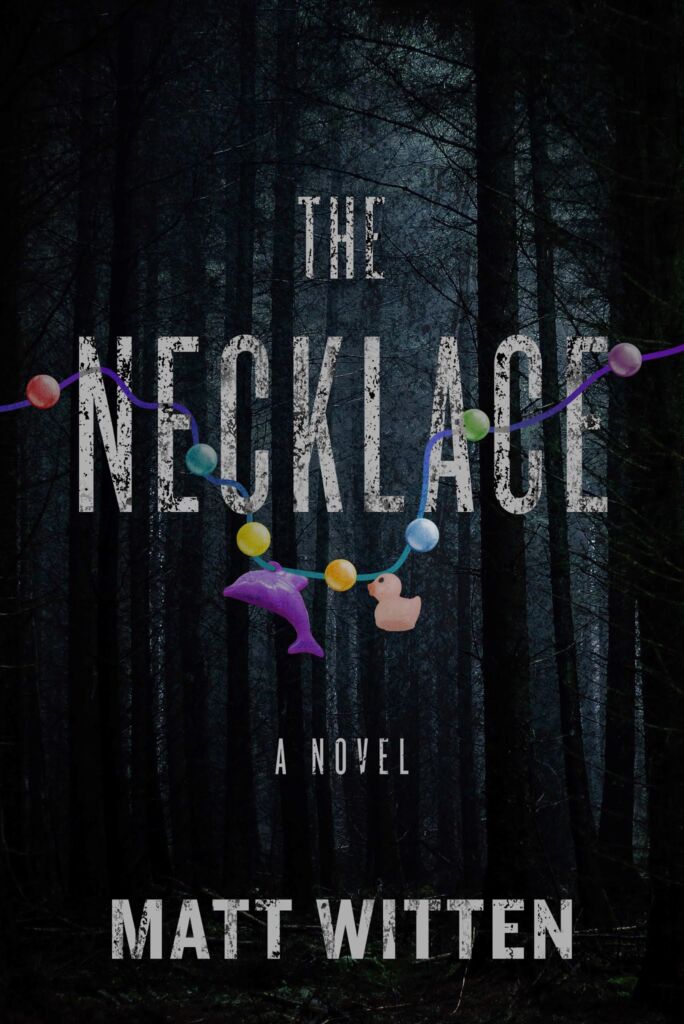
Books have become even more significant in people’s lives during the past few years. Many who take pleasure from reading are also contemplating writing a novel. But, how and where do you start? Fortunately, the Emmy nominated writer and bestselling author of The Necklace, Matt Witten, is on hand to offer his expert advice.
Writing your first novel? Congratulations! You’re embarking on an amazing journey.
 As I’m sure you’ve already realised, writing a novel can be a lonely experience: just you and your cat sitting in front of the computer. But it can also be surprisingly convivial. And my first piece of advice for you is: to make the experience as convivial as possible. Join a writers’ group.
As I’m sure you’ve already realised, writing a novel can be a lonely experience: just you and your cat sitting in front of the computer. But it can also be surprisingly convivial. And my first piece of advice for you is: to make the experience as convivial as possible. Join a writers’ group.
You can find writers’ groups online. Or join the local chapter of a mystery writers’ or a romance writers’ organisation. Or take a writing class, whether online or in-person; often, some of the students will keep meeting for years afterwards. Or simply call up two of your closest friends who are also interested in writing a novel, or a memoir, or a book of poetry, and set aside a time every week or other week to get together.
In your group, you can read your chapters out loud to each other. Or, if you prefer, people can read the chapters beforehand. Assuming your groupmates are reasonably intelligent and friendly, you’ll find their feedback invaluable. Painful sometimes, but extremely helpful.
Another strategy that many writers, including me, use to help us write is: to work in coffee shops instead of at home, alone. It’s a great way to avoid feeling isolated.

Often emerging writers ask me: “How do you make yourself write?” I don’t have any magic solutions for that problem, and every writer is different, but here are some tricks I’ve found useful: I buy really nice pens in different colours, for when I’m writing or revising longhand. I have a set time for writing each day. I alternated standing at my desk, sitting, and using a “kneeling chair” so my back didn’t get achy.
Also, when I wake up in the morning, I ask myself, or the quiet voice inside myself, “What should I be doing today?” The answer usually comes back, “Write your novel.”
That way, when I get started writing for the day, I don’t worry about whether my book will sell, or whether it’s any good, or whatever. Since I know I’m doing what I’m supposed to be doing; I don’t stress. I would definitely recommend, upon awakening, while still in bed, asking some entity – God, or your higher power, or the universe, or the quiet voice inside you – “What should I be doing today?” Your writing day will get off to a much better start if you’re anything like me.
There’s another strategy I use, and it’s something my writing students at UCLA have also found helpful. When I begin writing a novel, I always write up my idea in a sentence, and then a paragraph. That helps me crystalise my idea and figure out what story I want to tell.
I then share the sentence and paragraph with my writers’ group and a couple of trusted friends; they often have helpful questions and suggestions.
After that, I write up my idea in a page or two; and then I write it up in four to eight single-spaced pages, fleshing out the characters and plot. I share each stage with my peeps, and again I get useful questions and suggestions.

This deepens my understanding of the novel I’m writing and keeps me from going down blind alleys.
My final piece of advice for first-time novelists is: writing a novel takes time, more time than you probably expect. You’ll need to think deeply and let your ideas and understanding of the character marinate.
Literally ten years ago, I read a newspaper article about a woman in a small town who was holding a fundraiser at a local bar so she could travel across the country to witness the execution of the man who had killed her young daughter twenty years before.
That story immediately pulled at me, and I put it up on the bulletin board next to my desk. I looked at that article every day for eight years before I understood the story I wanted to tell that was inspired by this woman. It took me another year after that to write this story, which became my novel The Necklace.
So if you have trouble figuring out your story or feel like you’re rewriting endlessly, don’t stress about it. That’s how it goes sometimes. Share your frustration with your writing group, and you can all have a drink and laugh about it because I promise they’ve all experienced the same things.
Good luck!
The Necklace: A Grieving Mother’s Quest for Justice by Matt Witten is out in paperback, priced £8.99, published by Legend Press.
This guest article was written by Matt Witten.
Read more lifestyle guides and features here.
![]()




You must be logged in to post a comment.